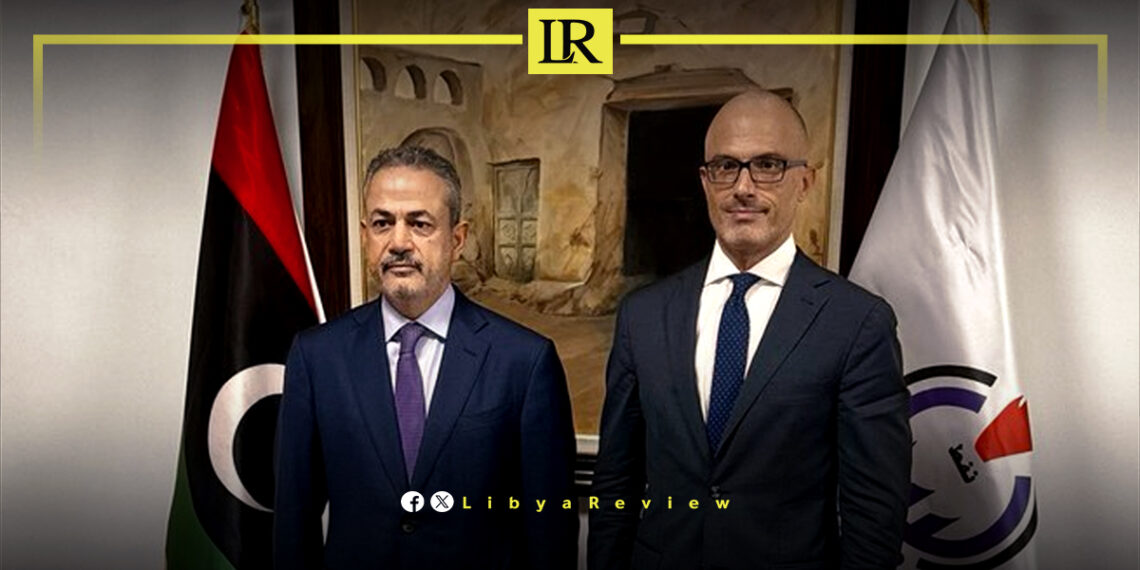On Monday, First Deputy Speaker of Libya’s Parliament, Fawzi Al-Nuwairi, met with Jeremy Berndt, the U.S. Chargé d’Affaires to Libya, to discuss advancing Libyan-led solutions for resolving the ongoing political crisis.
The meeting, held at the Parliament in Benghazi, focused on the latest political developments and the importance of moving toward presidential and parliamentary elections as soon as possible.
Al-Nuwairi and Berndt emphasized the need for a solution driven by Libyan leadership to break the political deadlock. Both sides agreed that facilitating the election process is crucial to stabilizing Libya and reducing foreign interference in the country’s internal affairs.
The discussion also touched on the role of the United Nations Support Mission in Libya (UNSMIL) in supporting these Libyan-led initiatives, particularly in minimizing external influences on the political process. Al-Nuwairi praised recent agreements, including the House of Representatives and High Council of State’s consensus on appointing a new governor and deputy governor for the Central Bank of Libya—an important step toward economic stability.
In a separate meeting, Berndt met with Mahmoud Al-Furjani, Chairman and CEO of the Sirte Free Zone, where they discussed ongoing development projects and potential opportunities to enhance economic cooperation between Libya and the United States.
Libya has faced a protracted political crisis since the fall of Muammar Gaddafi in 2011, with multiple factions vying for control of the country. Despite progress in recent years, Libya remains divided, with rival governments in the east and west, frequent disruptions in governance, and stalled efforts to hold national elections.
The political deadlock has exacerbated economic instability and allowed foreign actors to exert influence over the country’s affairs. Libya’s oil-rich economy has been particularly affected by these divisions, making political reconciliation essential to restoring stability and economic growth.
The Libyan Parliament and the High Council of State have made efforts to negotiate solutions, including a recent agreement on the leadership of the Central Bank of Libya, which is key to managing the country’s wealth and stabilizing its financial sector.


